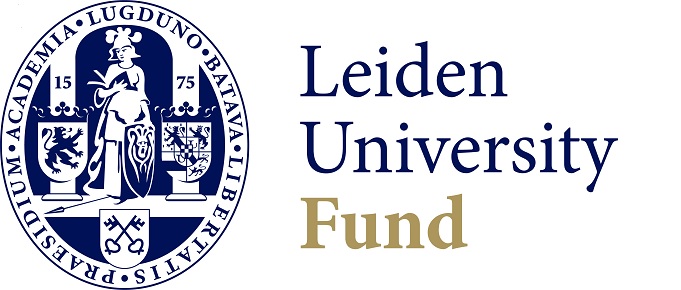
LUF Impulse grants for interdisciplinary research
What effects do large infrastructure projects in Africa have on citizens, economic opportunity and social marginalization? And how does farmland affect the liver? Two research questions that can be further investigated thanks to grants from the Leiden University Fund.
The project ‘Sea-ing Africa: Tracing Legacies and Engaging Future Promises of ‘Big’ Infrastructure Projects in Port City Regions in Ghana and Morocco’ has been honored with the LUF Impulse Grant of € 150.000.
The researchers of this project are dr. Sabine Luning en prof.dr.ing. Carola Hein (Social and Behavioural Sciences), prof.dr. Marleen Dekker en dr. Akinyinka Akinyoade (African Studies Centre Leiden, ASCL) en prof.dr. Léon Buskens (Humanities, Director NIMAR).
And an Impulse Grant of €150,000 will allow dr. Milena Schönke (LUMC) and dr. Emilia Hannula (Science) to get started on their project 'Of farmers, food and fatty livers: Effect of agricultural practice on liver health'.
‘Sea-ing Africa’
Infrastructure projects in port regions in Ghana and Morocco are the focus of the collaboration within 'Sea-ing Africa'. Infrastructure projects have long been considered the domain of engineers and planners, but recently there has been a growing understanding that an interdisciplinary approach is needed for a good understanding of the impact of infrastructure on society. A broader view is needed, says Dr. Sabine Luning.
'Infrastructure is so much more than a structure. The arrival of a port, a road or a railway line is always part of geopolitical, socio-economic, and political processes and is based on cultural values about 'the future' of society; The projects have a major impact on the population and the environment. But what exactly does it contribute to development? And for whom? These are questions that we want to answer as a group.'

'In our research, we therefore look at the effects of transnational infrastructure projects on citizens, land use, economic opportunities and social marginalisation. The aim of our transdisciplinary collaboration is to gain insights into how such projects can be fairer and more sustainable. In Ghana we are doing this around the infrastructure projects near the port city of Takoradi and in Morocco around the Tangier-Agadir Corridor. We integrate this research with Fieldschools for MA students of Cultural Anthropology and African Studies.'
An important part of the research is to sharpen the students' research skills, says Luning. 'The fact that they are going to both locations – in Morocco and Ghana – will really broaden their horizons. Macro projects then come to life, if the students can see how those projects affect the local people. They learn to study major societal transitions in concrete fieldwork. They become familiar with different disciplinary methods to look at processes of planning, construction and impact of infrastructure projects: how do you conduct research at a port, an engineering firm, a construction site or along a railway line?'
Does farmland affect steatotic liver disease?
Some 2 billion people worldwide have what is known as "fatty liver disease," a nasty condition that can lead to scar tissue in the liver and liver cancer. "That makes it one of the most common diseases," says Dr. Milena Schönke. 'And because there is no cure for it, the key is to combat this disease by making lifestyle changes.' With their research, Schönke and Dr. Emilia Hannula hope to contribute to this.
'Our hypothesis is that agricultural land has an effect on the composition of the gut microbiome and therefore on steatotic liver disease. The microbiome - the interplay of microorganisms such as bacteria, viruses and yeasts - is affected by what we eat; and the fruits and vegetables we eat are in turn affected by the microbiome of the farmland in which or on which they grow. And now it is striking that people with fatty liver have a less diverse microbiome in their gut.'

'To investigate whether our hypothesis is correct, we are going to supplement mice with steatotic liver disease for 16 weeks. We will do this with raw roots that come from different types of farmland and we will compare them with roots that have been grown sterile. After 16 weeks we analyze the livers; if it turns out that there is indeed a relationship between the composition of farmland and steatotic liver disease, then we can start a major study on the effect of agricultural procedures on our overall health. And from that, recommendations for improving the growing of fruits and vegetables will undoubtedly roll out.'
That she can engage in collaborations outside her own faculty for her research is very appealing to her, Schönke says. 'The best thing about science is that you go somewhere no one has ever been before. But getting there alone doesn't work; you have to bring expertise together and make connections that you can build on. Because everything cool in science happens at such intersections.'
Why a LUF Impulse Grant?
The complex social issues of our time rarely fall within the confines of one field or specialty. When searching for solutions, it is therefore important that scientists look beyond the boundaries of their own domains. This leads to new insights and forms of collaboration and a greater contribution to solving social issues. It also gives students more opportunities to develop in new fields and interesting combinations of fields of science. To further encourage interfaculty projects, LUF is awarding two grants of up to €150,000.
